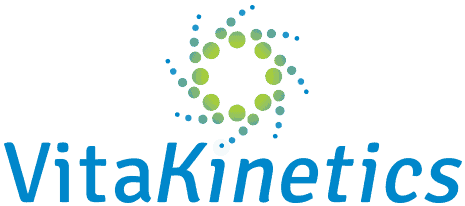Radically Resilient Health Podcast
The Gut Brain Connection | Part 2 | Inflammation
In our last podcast, we discussed the fundamentals of how the gut and brain are connected, and we outlined the concept of intestinal permeability. Intestinal permeability, or “leaky gut,” occurs when the intestinal lining is altered and consequently cannot function adequately as a protective barrier nor a nutrient absorber. But how are these connected systems affected when our bodies experience inflammation?
Inflammation: Guilt by association
Inflammation often gets a bad rap, usually due to its association with insult, injury, or unwanted stress to our bodies. It is important to remember, however, that inflammation is our bodies’ natural healing process required for an injury to repair. For this to happen, our bodies need inflammatory cells to clean up an injury site and prepare it for reconstruction.
Inflammation is a good thing. Especially when our bodies’ inflammatory processes are not drastically altered. When an inflammatory process becomes hindered, our bodies’ ability to fully heal and recover in turn becomes hindered. Too little or too much inflammation will not provide an optimal environment for our bodies to heal. Take a sprained ankle, for example. While an immediate application of ice, compression, and anti-inflammatory medications may alleviate pain and swelling, we don’t necessarily want to completely shut down our bodies’ natural processes of inflammation. This would disrupt our bodies’ essential response for cellular turnover and healing. If the inflammatory cycle becomes overactive due to repetitive strain or reinjury, our bodies often respond with chronic pain disorders or abnormal healing patterns. If we can visualize these two extremes on a bell curve, our goal in regards to inflammation is to land somewhere in the middle: an optimal healing zone.
How do the gut and brain relate to inflammation and healing?
While an injury may occur locally in one part of our bodies, the systemic inflammatory response is key for optimal repair at that site. If the integrity of the gut-brain connection is healthy, we can keep the systemic inflammatory process in check too. In contrast, if our gut is not as healthy and that gut-brain connection becomes disrupted, signals from local injury sites to the brain can become impaired. To revisit the ankle sprain example, an injury will prompt a typical inflammatory process which sends a signal to the brain and elicits a behavioral response. A typical behavioral response, for example, might be to stop and elevate our leg to recover. But if our brain and our perception of that signal becomes exaggerated, that minor ankle sprain can become a chronic injury. This is because when we experience an exaggerated perception of pain, we respond behaviorally. In the case of a sprained ankle, we may be less inclined to move or walk, which are ultimately necessary functions of full recovery. Conversely, If our brains perceive diminished signals from that ankle sprain, our ankle could get stuck in a swollen inflammatory state because our brains are not signaling for an adequate inflammatory response to clean and repair the injury.
Nutrition and Inflammation
Nutrition plays a significant role in affecting that gut brain connection and, consequently, our bodies’ inflammatory processes. Research shows that the following foods may adversely affect the integrity of our gut lining:
- Wheat / Gluten-based foods
- Sugar
- Food additives
- Heavily processed foods
- Trans-fats
- Some medications / pharmaceuticals.
- Alcohol
(Don’t shoot the messenger!)
Conversely, these foods were found to promote intestinal lining, gut health, and healing, while reducing excessive inflammation:
- Probiotics, prebiotics that are in starchy fruits and vegetables
- Eggs
- Beef / pork
- Olive oil
- Aloe vera
- Gelatin / Collagen
- Foods high in antioxidants: berries, cherries, grapes, leafy greens
- Leafy vegetables
- Liver
- Nuts / nut oil
- Turmeric – curcumin
- Omega 3 fatty acids – oily fish like salmon, tuna, sardines
- Flax seed
- Cocoa
- Foods high in Vit D – whey protein
- bone broth- high in L-glutamine – good for gut lining
Most importantly, keep it simple: by consuming whole nutrient-dense foods, we can promote and improve our gut health and our healing process. We often find ourselves searching for the BEST diet matrix, but the most valuable diet is one where we can identify and gather information about how our bodies respond to the foods we eat. If we are able to listen to our bodies when we eliminate inflammatory foods or increase consumption of nutrient-dense foods, we can assess how we feel with regard to pain, mood, or sleep patterns. If foods are eliminated and reintroduced, we can continue to pay attention to ourselves after that re-introduction. Some people can do ok with reintroducing some of those foods, others cannot. All of these nutritional factors with regards to inflammation and optimal healing were considered, of course, when creating the recipe for VitaKinetics. Sometimes an additional supplement is helpful in providing a boost to our personalized nutritional diets, especially when recovering from an injury. As long as we are mindful of what we consume in regards to how it helps or hinders our natural inflammatory processes, we will be heading in the right direction toward recovery, optimal health, and radical resilience.
_____________________________________________
Sources:
- https://pubmed.ncbi.nlm.nih.gov/23482055/ wheat and inflammation
- https://pubmed.ncbi.nlm.nih.gov/25734566/ gliadidn on celiac active disease, remission, Non celiac gluten sensitive, and control non celiac. – all had permeability and gluten sensitive worse
- https://pubmed.ncbi.nlm.nih.gov/26825414/
opioid like effects of gluten grains
- https://pubmed.ncbi.nlm.nih.gov/32841652/ – sugar, trans-fats, food additives, some medications
- https://pubmed.ncbi.nlm.nih.gov/31460832/
- https://pubmed.ncbi.nlm.nih.gov/24290962/
- https://pubmed.ncbi.nlm.nih.gov/32796608/

Mena
Radically Resilient Health Podcast Small Steps Conquer Mountains with Special Guest Mena Spodobalski Evoke Fitness owner, Mena Spodobalski, shares her joys and struggles toward radically resilient health. Health doesn't always have to seem radical. The best workout...
Recovery From Substance Dependency With Lori Windfelt
Radically Resilient Health Podcast Recovery From Substance Dependency With Lori Windfelt Radically Resilient Health is not about the absence of disease, injury, or stress, it is the ability to recover and make positive choices to support your overall health. Lori...
Emotional and Mental Resiliency – With Special Guest Dusty Braun
Radically Resilient Health Podcast Emotional and Mental Resiliency With Dr. Dusty Braun Our mind and body are intimately interconnected in ways that we can't really comprehend outside of science. We oftentimes think ourselves or our minds as separate from our body,...
Available at our partner locations

690 West 2nd St. Suite 101
Reno, NV 89503

13981 S Virginia St #402b,
Reno, NV 89511








